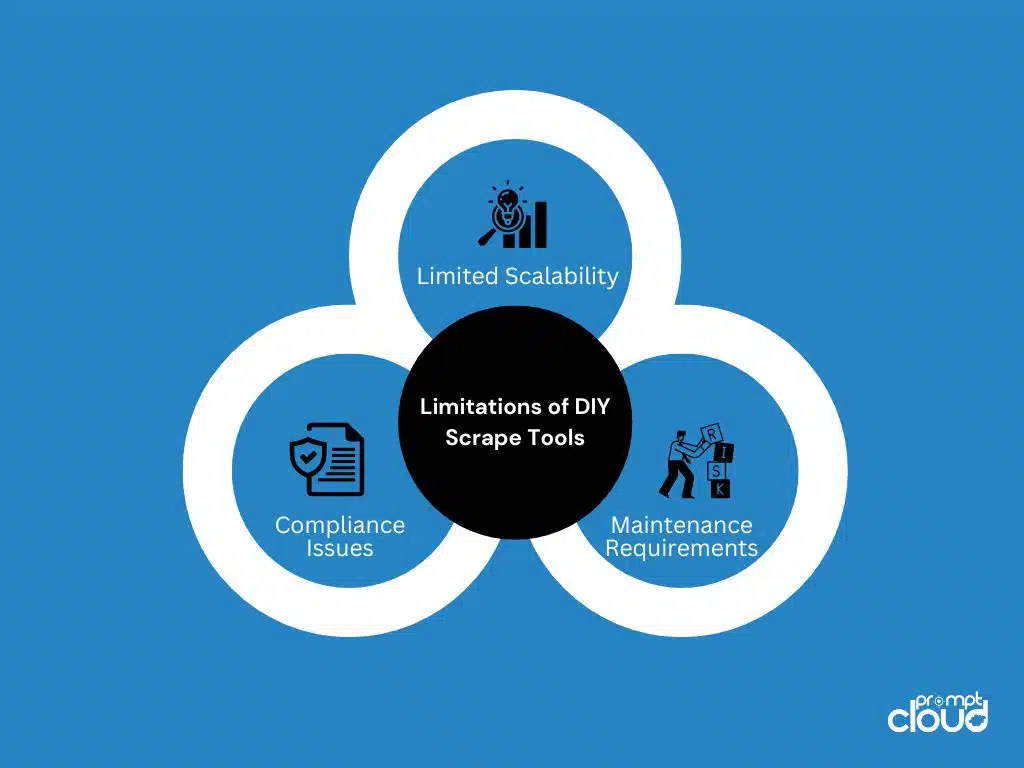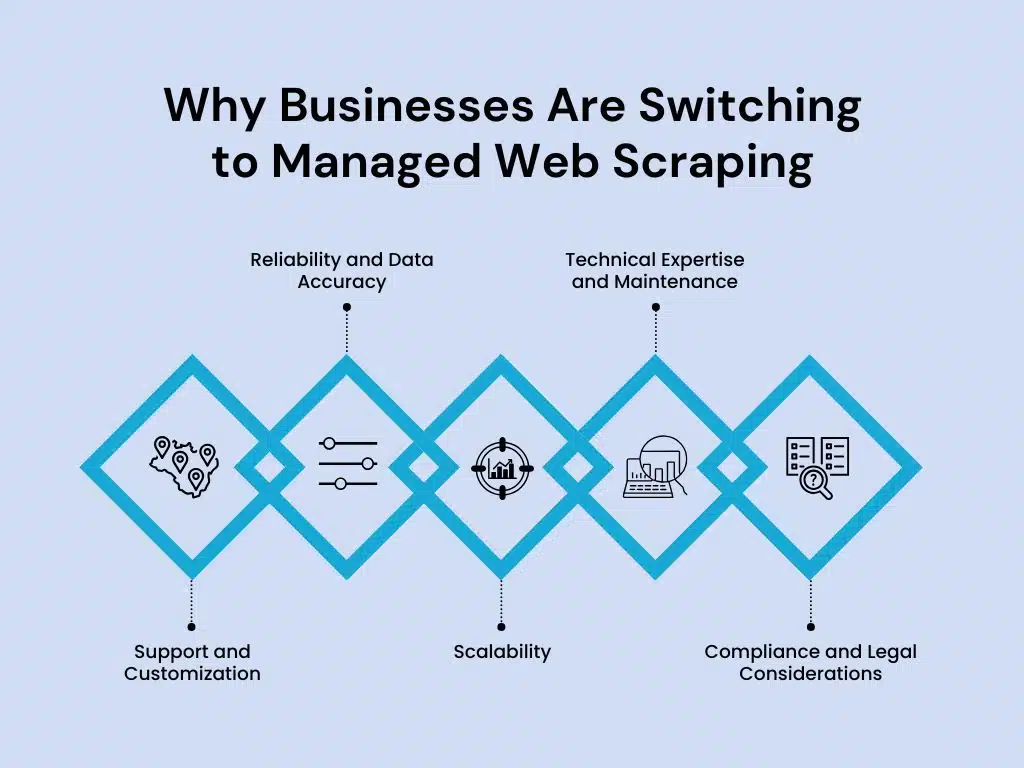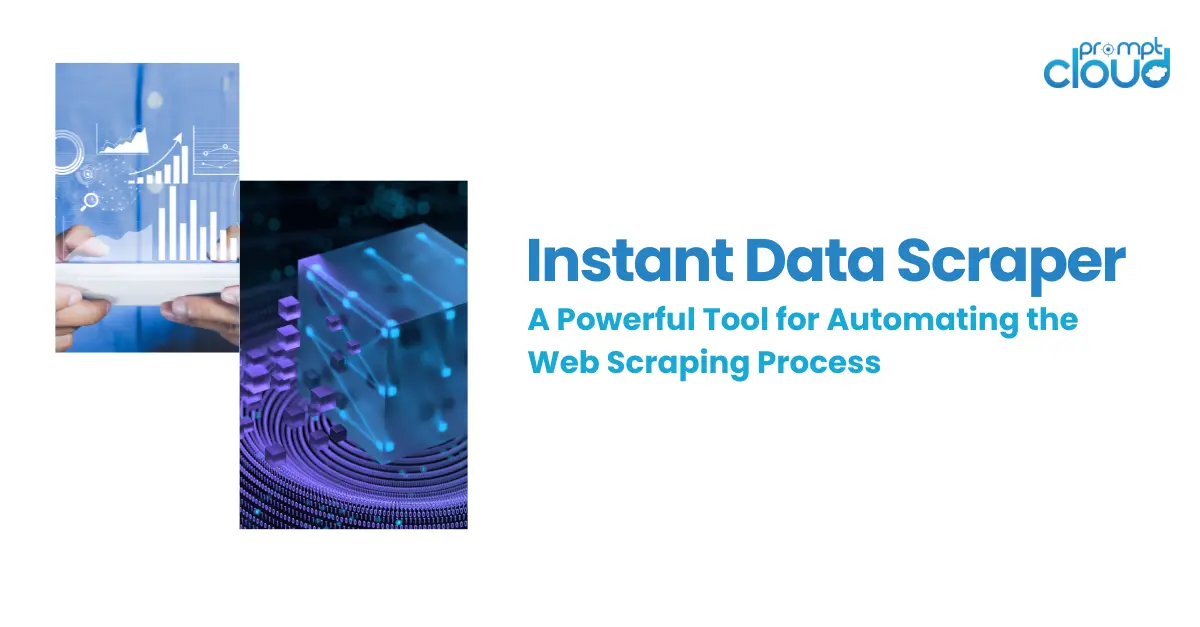
In today’s digital landscape, businesses rely heavily on web scraping to gather critical data for competitive analysis, market research, and decision-making. While some companies start with DIY solutions using basic scrape tools, many eventually transition to managed web scraping services for more scalable, reliable, and compliant data collection. The shift from DIY scrape tools to managed solutions isn’t just about convenience; it’s about efficiency, accuracy, and long-term success.
In this article, we’ll explore the top five reasons why businesses are making the switch from DIY scrape tools to managed web scraping services and how this decision adds value to their operations.
What Makes DIY Scrape Tools So Popular?
A scrape tool is a software or script that extracts data from websites automatically. DIY scrape tools are often the go-to choice for startups or small businesses when they first venture into web scraping. These tools can be simple to set up, require minimal investment, and provide access to a wide range of publicly available data. Many businesses use these scrape tools to gather product pricing, customer reviews, competitor data, and more.
However, as data needs grow in scale and complexity, DIY scrape tools often prove insufficient. That’s when businesses start looking for more robust, managed solutions.
What Are the Key Limitations of DIY Scrape Tools?
While DIY scrape tools are great for getting started, they come with several limitations that can hinder long-term success. Here are some of the most common challenges businesses face when using these tools:

- Limited Scalability: Most DIY scrape tools are built for small-scale data collection. As your data needs grow, the tool’s performance can lag, leading to slower scraping or incomplete data.
- Maintenance Requirements: Websites change frequently, and DIY scrape tools often break when these changes occur. Maintaining and updating the tools to adapt to new website structures can be time-consuming and technical.
- Compliance Issues: Many DIY scrape tools lack built-in compliance measures to ensure data collection adheres to legal guidelines, such as website terms of service or GDPR regulations.
For these reasons, businesses eventually shift to managed web scraping services that offer greater reliability, scalability, and compliance.
Why Businesses Are Switching to Managed Web Scraping

1. Scalability
One of the primary reasons businesses switch from DIY scrape tools to managed web scraping services is scalability. While a basic scrape tool may work fine for small-scale data extraction, it struggles to handle the increasing demand as your business grows. Managed web scraping services are designed to handle large-scale data extraction efficiently, no matter how many websites you need to scrape or how much data you need.
For example, e-commerce businesses that need to track thousands of product listings or prices across multiple competitors will find DIY scrape tools slow and unreliable. A managed service, on the other hand, offers scalable infrastructure that can handle large amounts of data without compromising on speed or accuracy.
2. Reliability and Data Accuracy
DIY scrape tools often struggle to deliver accurate and reliable data, especially when dealing with dynamic websites or pages that change frequently. Websites may update their structure, implement anti-scraping technologies, or use JavaScript to display data, which can break a basic scrape tool. This leads to incomplete or incorrect data extraction, which can hurt your business decisions.
Managed web scraping services, however, offer more advanced tools and support to ensure that your data is always accurate and up-to-date. These services can handle complex websites and adapt quickly to changes in site structure or content.
3. Technical Expertise and Maintenance
Maintaining a DIY scrape tool requires technical expertise, especially when websites update their layouts or introduce scraping blockers like CAPTCHAs or anti-bot measures. While some businesses may have the in-house expertise to troubleshoot and fix these issues, most do not have the time or resources to continuously update and maintain their scrape tools.
By switching to a managed web scraping service, businesses no longer need to worry about the technical maintenance of their scrapers. The service provider handles all updates, ensuring that the scraper works smoothly even when websites change.
4. Compliance and Legal Considerations
Legal and ethical concerns are increasingly important when it comes to web scraping. Websites often have terms of service that specify how their data can be used, and violations can result in legal action. Moreover, regulations like GDPR impose strict requirements on data privacy and handling, which DIY scrape tools often do not address.
Managed web scraping services, on the other hand, are designed with compliance in mind. They follow best practices to ensure that your data collection activities are both ethical and legal. These services can help businesses navigate complex regulatory environments and reduce the risk of non-compliance.
5. Support and Customization
A major drawback of DIY scrape tools is the lack of customization and support. Most basic tools offer limited functionality, and you’re often on your own if something goes wrong. As your data needs become more complex, the inability to customize your scrape tool can limit its effectiveness.
Managed web scraping services offer personalized support and can tailor the scraping solution to your specific business requirements. Whether you need custom data formats, specific scraping intervals, or complex extraction rules, managed services can provide the flexibility and support you need.
The Long-Term Value of Managed Web Scraping Services
Switching from a DIY scrape tool to a managed service may seem like a big step, but the long-term benefits far outweigh the initial investment. Managed web scraping services provide businesses with a reliable, scalable, and compliant solution for gathering data without the headaches of maintaining the tool themselves.
Here are some key long-term benefits of managed web scraping services:
- Peace of Mind: With a managed service, you don’t have to worry about your scrapers breaking, data inaccuracies, or compliance issues. You can focus on analyzing the data and using it to make strategic business decisions.
- Cost Efficiency: While DIY scrape tools may seem cost-effective at first, the time and resources spent maintaining them can add up. Managed services may come with an upfront cost but ultimately save businesses money by reducing maintenance and operational costs.
- Customization and Flexibility: As your business evolves, so will your data needs. Managed services provide the flexibility to adjust scraping parameters, customize data formats, and scale as needed, ensuring your web scraping solution grows with your business.
Conclusion
While DIY scrape tools are a popular choice for businesses just starting out with web scraping, they quickly reveal their limitations as data needs grow. Scalability, accuracy, compliance, and support are all crucial factors that a basic scrape tool may not be able to provide.
Managed web scraping services offer businesses a more reliable, scalable, and compliant solution. With expert support, tailored services, and the ability to handle large-scale data extraction, managed web scraping is the smarter choice for businesses looking to stay competitive in today’s data-driven world.
If you’re ready to make the switch from DIY scrape tools to a managed solution, contact PromptCloud today to explore how we can help you achieve your data goals with ease.



















